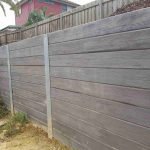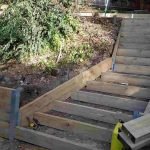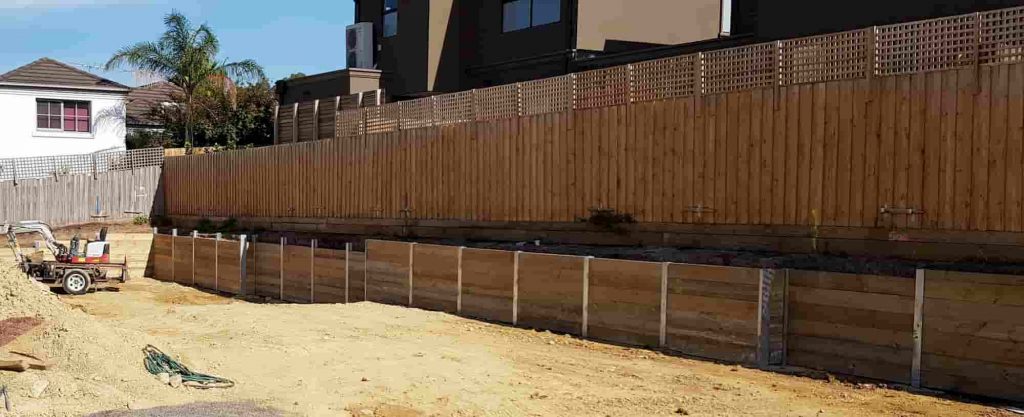Introduction
When it concerns landscaping and home enhancement, retaining walls play an essential function in handling soil disintegration, developing usable area, and boosting aesthetic appeal. However, hiring a professional specialist for this job is not constantly as straightforward as it may seem. From timber sleepers to concrete sleepers, and even the robust H beam systems, the options can be overwhelming. In this article, we'll explore the prospective mistakes you might come across when employing a retaining wall professional. We'll explore red flags that could suggest difficulty ahead, guaranteeing you make an informed choice while purchasing your property.
Hiring a Retaining Wall Contractor: Red Flags to Watch Out For
Building a retaining wall is no small feat. It needs expertise, experience, and the ideal products. Regrettably, not all contractors have these qualities. When starting this journey, it's vital to be aware of certain warnings that may indicate problems down the line.
Understanding Keeping Walls
What Are Maintaining Walls?
Retaining walls are structures developed to keep back soil or rock from a building or structure. They are frequently used in sloping or sloped surfaces and can be constructed from different materials like wood sleepers, cinder block, or H beams.

Types of Retaining Walls
Gravity Walls- These count on their weight to resist lateral pressure.
- Made of strengthened concrete; they utilize take advantage of to support the soil behind them.
- These are protected utilizing rods or cable televisions anchored in the ground for added support.
- Typically used in soft soils; they consist of long sheets driven into the ground.
- Made of interlocking cinder block; these are popular for do it yourself projects.
Each type has its pros and cons depending on the particular requirements and conditions of your site.
The Value of Working with Professionals
Why You Required a Professional Contractor?
When building a retaining wall, opting for a professional specialist can save you money and time in the long run. Professionals come equipped with:
- Knowledge of local codes and regulations The ability to examine soil conditions effectively Experience with different products such as timber sleeper and concrete sleeper systems Technical skills for correct installation
Benefits of Professional Expertise
Quality Assurance: Professionals make sure that your retaining wall is constructed according to standards. Time Efficiency: They have processes in location that can get the job done faster. Cost Savings: While preliminary costs may appear greater, experts frequently conserve you from expensive mistakes later on.Identifying Warning When Working With Contractors
Lack of Qualifications and Licensing
Why Credentials Matter?
A licensed professional abide by market standards and local policies. Without appropriate qualifications:

- You risk safety violations. The quality of work might be subpar.
How to Examine Credentials?
Request copies of licenses. Verify through local licensing boards. Check online evaluates for extra assurance.Unclear Price quotes or Contracts
Importance of Clearness in Contracts
Contracts function as legal protection for both parties involved in the task. An uncertain contract could lead to misconceptions regarding costs or timelines.
What Should Be Included?
An in-depth breakdown of materials (consisting of timber sleeper types). Exact task timelines. Payment schedules. Warranty information.Poor Interaction Skills
Why Communication Matters?
Effective interaction is vital throughout any construction job as it guarantees that both parties are aligned on expectations and progress updates.
Signs of Poor Interaction:
- Delays in responses Incomplete responses to your questions Lack of openness concerning job changes
Insufficient Experience with Maintaining Walls
How Much Experience Is Enough?
Experience matters substantially when it pertains to customized tasks like keeping walls due to their special structural requirements.
Questions To Ask Possible Professionals:
How numerous comparable jobs have you completed? Can you supply references? What types of materials do you recommend?Unverifiable References or Reviews
Importance of References
Trustworthy contractors should readily supply recommendations who can guarantee their work quality and reliability.
How To Vet References?
- Contact former customers directly. Request pictures from completed projects.
Pressure Methods Throughout Negotiation
Recognizing High-pressure Sales Tactics
If a contractor hurries you into signing an agreement or makes overstated promises about prices:

- This could indicate desperation or insecurity about their services.
Understanding Material Quality
While employing a specialist for your retaining wall job, it's vital likewise to think about the products they plan to use-- be it timber sleeper options or resilient concrete sleeper systems-- since bad product choices can jeopardize structural integrity over time.
FAQ Section
1. What materials are best for retaining walls?
Timber sleepers are excellent for visual appeal but may require more maintenance than concrete sleepers which offer retaining walls resilience however less visual charm.
2. How do I understand if my soil requires reinforcement?
Consulting with a geotechnical engineer can assist assess whether your soil positions risks needing strengthened walls like H beams.
3. The length of time does it require to build a keeping wall?
Typically between one week and one month depends upon size, intricacy, weather conditions, and professional availability.
4. Do I require licenses for setting up a keeping wall?
Most towns need licenses; check with local authorities before starting construction.
5. What takes place if my wall fails?
A stopping working wall can result in serious safety threats including property damage; instant assessment with experts is crucial if problems develop post-installation.
6. Can I set up a retaining wall myself?
While do it yourself options exist, without correct knowledge or skills-- particularly regarding drain-- you may find yourself dealing with expensive corrections down the line.
Conclusion
In conclusion, working with a retaining wall professional requires alertness versus potential red flags that could trigger headaches in the future down the roadway! By being proactive-- checking qualifications thoroughly; ensuring clear quotes; establishing effective interaction channels; verifying experience levels related particularly towards constructing these structures-- you'll place yourself positively towards achieving effective results!
Remember: investing time upfront will pay dividends when it comes time for installation day! Always prioritize dealing with reliable professionals who comprehend both looks (like timber sleeper designs) & & performance (such as concrete sleeper strengths). So keep these guidelines close at hand next time you're looking at choices-- the future stability & & appeal of your landscape depends upon it!